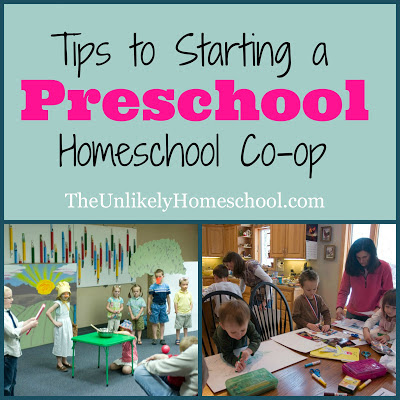 |
| Painting shields at our co-op Renaissance Festival |
Will you be an open or a closed group?
An Open Group
This is a group that allows any interested families to join. There may be a simple registration or screening process, but prospective members are almost always embraced.A Closed Group
This is a group that does not advertise when they are seeking new members. Families are welcomed by invitation only. Current members often cast a vote to determine whether a prospective family should be welcomed.What criteria, if any, would determine membership?
Whether you wish to be an open or closed group, here are a few thoughts to consider before welcoming new mothers and their children. This is by no means an exhaustive list and may not always apply to each and every family.
- What are her reasons for homeschooling and are they similar to yours?
- Does she share your same faith beliefs?
- How many children does she have?
- What are the ages of her children?
- Do you foresee your children establishing healthy relationships with her children?
- Does she have children OLDER than preschool? If so, what will her older children be doing during the preschool co-op? (Unfortunately, it has been my experience that mothers who have older children that just "tag along" on co-op days are not as committed to the preschool group as those whose oldest child is in preschool. If you are giving 100% of your time, energy, and attention at each co-op class, you'd like to assume that all of the other moms are doing so as well. )
- What other outside-of-the-home responsibilities does she have? (Launching a co-op requires much commitment of time and energy.)
- What strengths/gifts does she have that would benefit the entire group?
- Does she share similar parenting/disciplining beliefs? (Each mom will be in a place of authority in the lives of your children. Do you trust that she will handle disciplinary needs appropriately.)
- Would you trust her alone with your children?
- Do you share a similar financial status? (Will you be able to afford to participate in many expensive field trips and activities that she may suggest for the group?)
How will you advertise for members?
For the Open Group
If you desire to keep enrollment open and have limited input on member criteria, advertising can be broad. Some suggestions for advertising include:- post flyers on community bulletin boards (at the library, local churches, etc.)
- inquire on social media (Facebook, Twitter)
- solicit on Craigslist
- petition at other well-established co-ops that do not provide preschool offerings
- announce your intentions at community gatherings (local MOPS groups, women's Bible studies, social clubs, etc.)
For the Closed Group
How many families will participate?
Obviously, the answer to this question relies heavily on the space that you intend to use for your co-op meetings as well as the number of children each family has. But, location and family size are not the only factors to consider when determining an appropriate number of participants.There are obviously PROS and CONS of having both a big or a small group. Here are just a few.
Big Groups
- Big groups offer many different classes each semester/year because they have the population and manpower to do so.
- Many talents and gifts are represented in a larger group which may offer each child a more-enriching learning experience.
- More families will provide a wider range of potential relationships for mothers and children.
- Big groups are often organized/led by a council and so each individual family has less input into the planning and operations of the group.
- Big groups usually have a very orderly schedule/agenda which is not always very conducive for families with many little ones.
- Big groups often have a bigger budget and can delegate the teaching responsibility to outside individuals allowing each mother to enjoy some much-needed respite.
Small Groups
- Relationships NOT activities are often the focus in a smaller group.
- If one or more members have to miss a meeting due to illness or other commitments, it affects the entire co-op.
- Smaller groups are often more flexible because the communication process is easier. In the event that the teacher is sick, she only has to make a handful of phone calls. Co-op meetings can be postponed and rescheduled more easily.
- The "venue" is usually a home or a one-room meeting area.
- Each mother often has many responsibilities in order to maintain a successful meeting/year.
- Each mother is able to provide input on the planning and operations of the group.
Finding families to join you in a preschool homeschool co-op is the first and most important task in launching a new group. As most of the CORE learning for homeschooling is done at home...ALONE or with a few siblings....co-operative learning is generally less about WHAT you are studying, and more about WHO you are studying it with. On that note, let me encourage you to seek moms of like-mind who can come alongside and walk parallel with you in your journey and whose kids can do the same for your kids.
For more info on Starting co-ops:
IntroductionPartnering With Other Families
Choosing a Time and a Place to Meet
Planning Age-Appropriate Classes
Creating a Schedule and Assigning Jobs




No comments:
Post a Comment